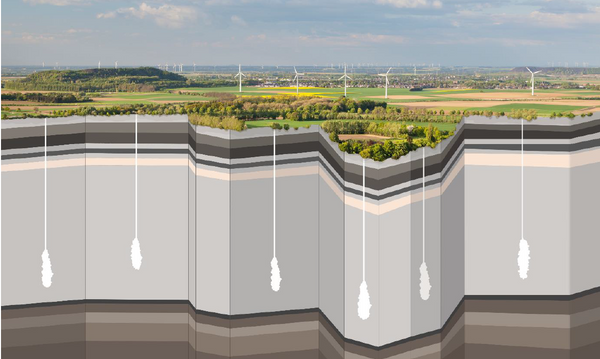Hydrogen salt cavern storage project calls for participants
Hydrogen Salt Cavern Storage
(H2SaltCavern)
Joint industry project - Call for Participants

The Challenge
Storing hydrogen in salt caverns can play a considerable role in helping deliver the energy transition while meeting the targets of the Paris Agreement. Hydrogen storage at scale will be used for various purposes such as energy security, decarbonizing industrial processes, balancing supply and demand, and maximising recovery of variable electricity from wind and solar. The storage of H2 in salt caverns requires adequate design and may also include repurposing of existing natural gas assets. DNV has contacted nearly 40 companies and gathered extensive feedback on industry top challenges and the most urgent problems. While considerable research on H2 salt caverns is on-going, KEM-28 (The Dutch Minister of Economic Affairs) and Standardization Roadmap H2 Technologies 2024 (Federal Ministry for Economic Affairs and Climate Action of Germany) have identified the following safety-oriented themes in need of further R&D:
- Hydrogen blowout consequence
- Impact of surface fire & explosion
- Mechanical integrity testing (MIT)
- Cement compatibility & degradation
- Material compatibility tubing & casing focused
There are currently four commercial sites in operation globally which store hydrogen in salt caverns, along with a handful of pilot-scale projects. As the energy transition accelerates, the number of hydrogen storage caverns is expected to increase significantly. The underlying question is whether existing standards for natural gas salt cavern storage could be applied to hydrogen.
Joint Industry Project (JIP)
DNV will bring together relevant stakeholders on a two-year project to develop a European focused and rationalized safety approach for development and operation of salt caverns for storage of H2. The JIP will review the applicability of natural gas storage procedures to H2 storage for surface effects of a blowout, fire plume behavior, explosion behavior, exclusion zones and poisoning from toxic emissions. The study will also investigate the validity of existing separation distances & exclusion zones for hydrogen repurposing, validity of integrity testing with nitrogen as test gas, use of existing cement technology, whether it is possible to use existing tubing & casing materials and effect of impurities etc.
The scope will consist of phase 1 and phase 1 extension. Phase 1 (base case) will focus on data gathering, literature review, gap analysis, scenario development followed by modelling and analysis with potential testing to cover the identified gaps. The extension of phase 1 will either address further analysis/ testing for these themes or will address entirely different themes based on project member needs. The project aims to kick-off in Jan 2025, subject to funding and partners. The outcome will be guidelines enhancing confidence in usage of salt caverns for H2 storage. The project will facilitate the certification of H2 salt caverns around the five safety themes and give participants the opportunity to influence the best practice. Companies are requested to express intent (subject to scope & contract) for receipt of a formal proposal.
Contact: [email protected]
